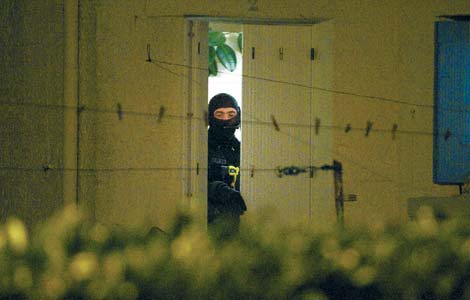 |
|
|
|
|||||||||||
JINAN - The Chinese government's new regulations to clamp down on rocketing funeral and burial prices has prompted heated discussion online in the run-up to China's traditional day of honoring ancestors, as the public fret that the policies may have limited power to curb profiteering by morticians.
The National Development and Reform Commission (NDRC), the country's top price regulator, and the Ministry of Civil Affairs released pricing guidelines on funeral services last weekend. It was a timely move with Tomb Sweeping Day, when online outcries over spiraling funeral expenses usually peak, falling on April 4 this year.
The new regulations soon became a hot topic on the Internet, but received only lukewarm applause. Many are pessimistic about the measures' efficiency, as they have not restored full confidence in the country's inflation-fighting credentials.
China's consumer price growth eased to 3.2 percent year-on-year in February, the lowest level in 20 months, but the prices of some vegetables rose sharply this month, triggering a fresh wave of inflation concerns.
"I don't have enough money to live or to die," read a widely-retweeted post on Sina Weibo, China's most popular Twitter-like microblogging service, after the news came out.
"The government's intention is good, but the prescription may go wrong. They should supervise more closely rather than set price caps. Or it may turn out to be counterproductive," said "Laogu" on Weibo.
The remarks were echoed by others citing fuel prices as an example. The NDRC is entitled to adjust oil prices based on movement in international markets, and its recent fuel price hike vexed cost-sensitive Internet users.
However, industry insiders noted that not all funeral items are overpriced. The overall government-regulated fees for basic services, including cremation and storage of ashes, can be as low as 500 yuan ($79.3), said Ren Minjun, deputy director of Jinan Municipal Funeral Home in east China's Shandong province.
Optional services, such as body preservation and deathbed rental, can be priced by funeral homes under government proposed standards, the new regulations postulated. But consumers complained that funeral homes were overcharging in many of these areas, and worried that they would be allowed to continue in the practice.
For instance, a wreath is at least 600 yuan, and funeral makeup costs 320 yuan, under the proposals. "I felt they are above market prices," said Zhai Chao, a Jinan resident who recently organized a funeral for a family member.
Of course, these items are not obligatory. But Chinese have a tradition of decent burial, so many still choose extra services to make the funeral ?"look good," according to Wang Zhongwu, a sociology professor at Shangdong University.
Zhai complained he had spent over 10,000 yuan, almost a third of his annual income, just on the funeral ceremony. "That doesn't include the more expensive burial part. The cremation urn, and not to mention, the tomb, are over priced," he added.
Chinese typically entomb the dead as a way to show respect. However, affordable government-run graveyards are scarce, while more costly commercial cemeteries are also limited.
The cheapest grave in Jinan's Shuangfeng Graveyard is priced at 12,600 yuan per square meter, almost 40 percent higher than the city's average housing price. A good feng shui tomb would cost even more.
Facing the runaway cost of burial places, netizens have drawn an analogy to the country's sizzling property market.
"The government should impose macro-controls on the underworld real estate industry, otherwise no one can afford to die," Mi Ruirong, chairman of Chengdu Wanbo Real Estate Co Ltd, said on her Weibo account.
"Problems related to land are always thorny," it was noted on the Sina Weibo account of Yangcheng Evening News, a newspaper in south China's Guangdong province.
Along with the country's rapid urbanization, demand for public cemeteries is surging. But graveyard land is currently in short supply. Governments should allocate more space for cemeteries when mapping out local development plans so as to meet public demand and cool down prices, suggested Zhang Yuanxiang, director of the Civil Affairs Bureau in Jiyang County, Shandong province.

|

|

|

|

|

|